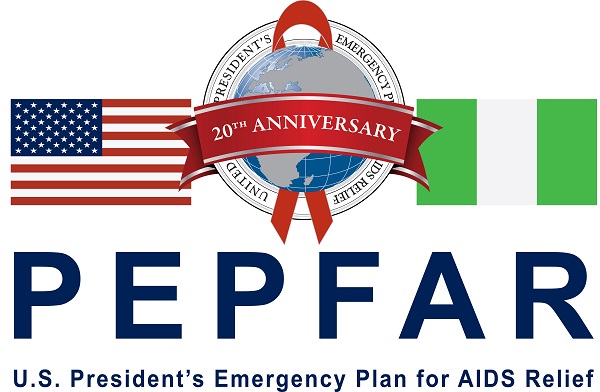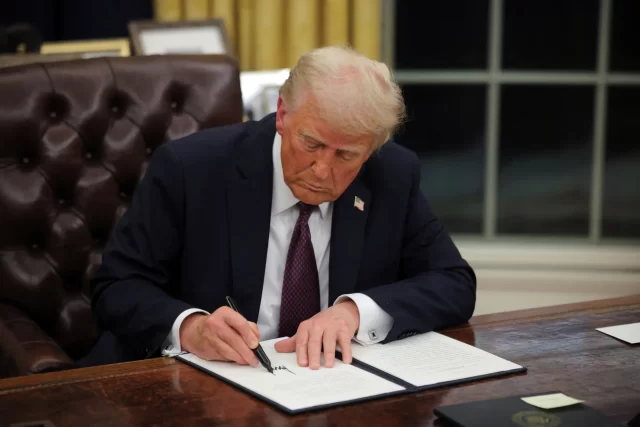The United States government under Donald Trump has halted funding for the President’s Emergency Plan for AIDS Relief (PEPFAR), a key program that provides life-saving HIV/AIDS treatment to millions of people in developing countries, including Nigeria.
The suspension, which follows an executive order signed by President Donald Trump, has raised concerns over the future of global HIV/AIDS response efforts.
The U.S. State Department has confirmed that disbursements from PEPFAR’s $6.5 billion annual budget have been put on hold for at least 90 days as part of a broader freeze on global health funding. The move stems from Trump’s executive directive requiring a review of foreign assistance programs before further spending is approved.
- Boko Haram IED Explosion on Borno Road Kills Eight, Wounds Others
- EFCC Opens Probe of 24 Nigerian Young Men Detained in Ghana over Suspected Cybercrimes
- Former CBN Governor Emefiele Attempts To Regain Forfeited Abuja Estate; Court Dismisses the Attempt
- King Sunny Ade’s House Divided as Daughter Alleges he has Been Kidnapped; Other Family Members Deny Claim
- You Can Gather All Governors But If Nigerians Reject You, it is Over — El-Rufai Tells Tinubu
- Woman Leaves Husband after Falling in Love with ChatGPT
Impact on Nigeria and Other Affected Nations
Nigeria is one of the largest beneficiaries of PEPFAR, having received over $6 billion in funding since the program’s inception in 2003. The program provides essential services, including antiretroviral therapy (ART), HIV testing, prevention programs, and maternal care for HIV-positive mothers.
With an estimated two million Nigerians currently living with HIV, many of whom depend on PEPFAR for treatment, health experts warn that the funding halt could reverse significant progress made in controlling the epidemic.

“The United States is no longer going to blindly dole out money with no return for the American people,” a U.S. State Department official was quoted as saying, signaling a shift in U.S. foreign aid policy under the Trump administration.
PEPFAR has been a major pillar of the global HIV/AIDS response, reportedly saving over 26 million lives worldwide. The program was originally launched under President George W. Bush and has enjoyed bipartisan support in Congress over the years.
Concerns Over Future of HIV/AIDS Programs
Health experts and advocacy groups fear that if the suspension is prolonged, millions of people who rely on the program for treatment could face severe consequences, including an increased risk of HIV transmission and drug resistance.
A source from the Institute of Human Virology Nigeria (IHVN) told journalists that the Nigerian government has “not yet fully taken over” the management of HIV programs, meaning a reduction in American support could lead to a “major healthcare crisis.”
The National Agency for the Control of AIDS (NACA) and other stakeholders are now urging the Nigerian government to “mobilize alternative funding” to sustain ongoing treatment efforts. However, given the country’s economic challenges, there is uncertainty over whether local resources will be sufficient to fill the funding gap.

Political Implications and Possible Reversal
While the Trump administration’s stance on foreign aid suggests a tough road ahead, some analysts believe there may still be room for negotiation. In particular, there are hopes that Marco Rubio’s appointment as Secretary of State could provide a lifeline for PEPFAR, given his previous support for the initiative.
The international community, including UNAIDS and the Global Fund, has called on the U.S. government to reconsider the funding freeze, warning that it could “derail decades of progress” in the fight against HIV/AIDS.
What’s Next?
The suspension will remain in effect for at least three months, during which time the U.S. government is expected to review and reassess PEPFAR’s funding mechanisms. Advocates are pushing for an exemption for the program, arguing that public health should not be politicized.
For now, millions of people in Nigeria and other developing countries face uncertainty and potential health crises, with experts warning that every day without treatment increases the risk of “new infections and preventable deaths”.












